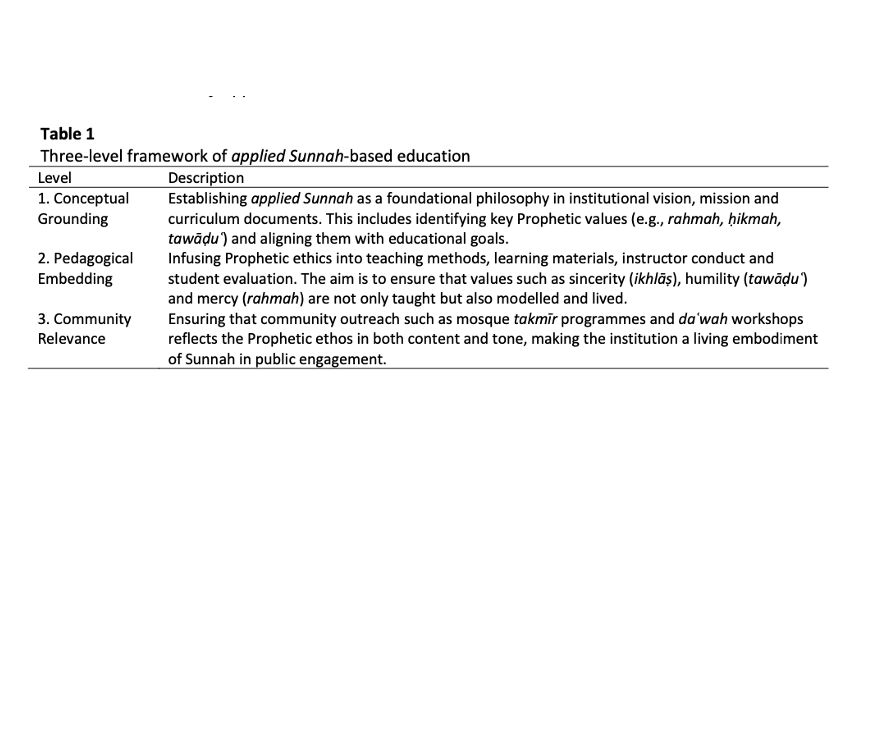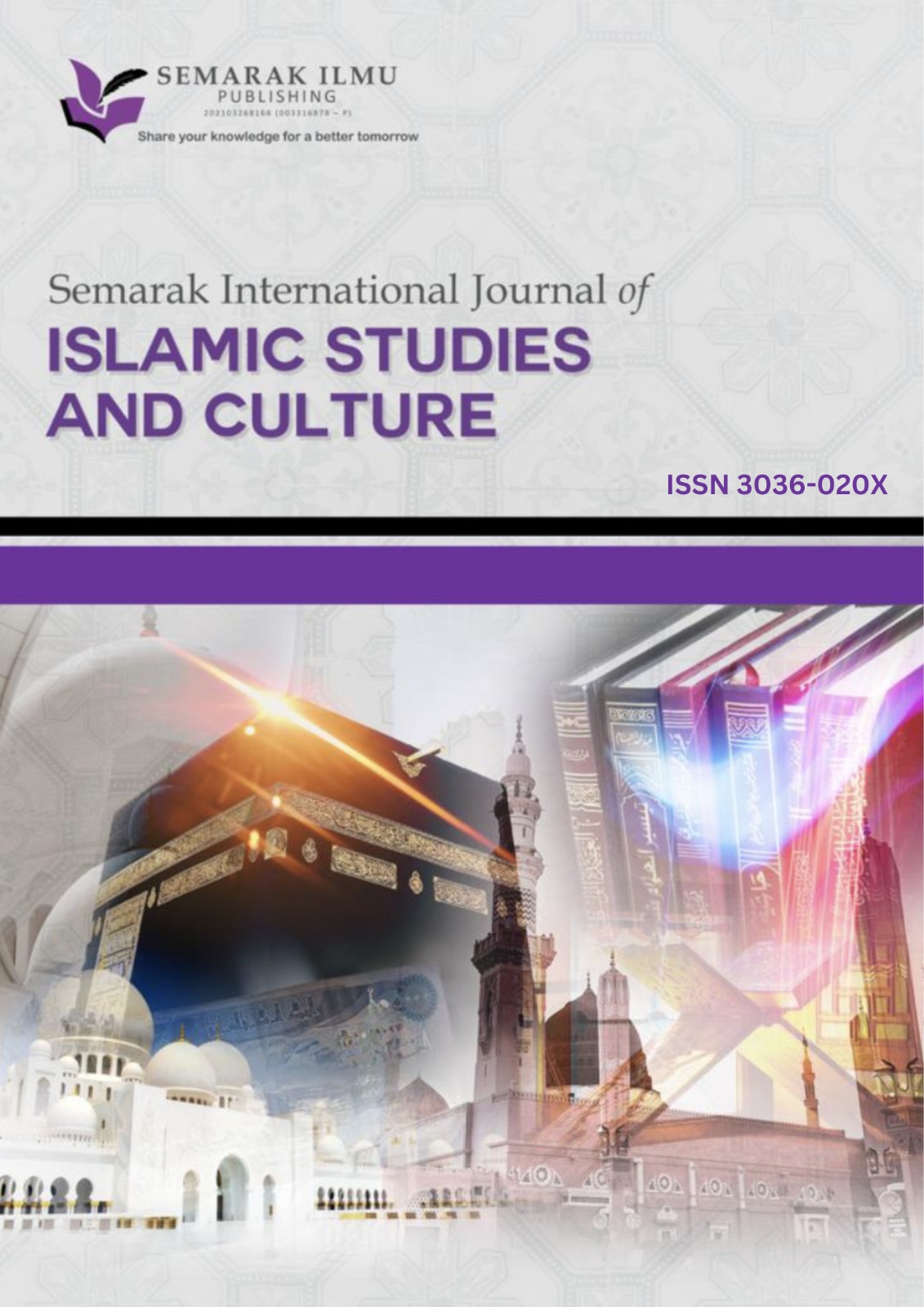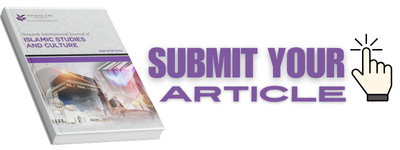Integrating Applied Sunnah in Islamic Higher Education: A Case Study of Unisiraj’s Outreach and Values-Based Teaching Model
DOI:
https://doi.org/10.37934/sijisc.7.1.110Keywords:
Applied sunnah, values-based teaching, UniSIRAJ, Islamic higher education, community outreach, pedagogyAbstract
Islamic higher education often privileges textual transmission over ethical formation, creating a gap between knowing the Sunnah and living it. This study examines how UniSIRAJ operationalises applied Sunnah the enactment of Prophetic ethics and methods across curriculum intent, teaching practices and mosque-based outreach. The objective is to conceptualise and evaluate UniSIRAJ’s values-based teaching model and its community relevance. A qualitative single-case design was employed, drawing on document analysis of takmīr syllabi, da‘wah modules, khuṭbah texts and internal reports (2021–2024), complemented by targeted observations of takmīr sessions. Data were thematically analysed following an inductive approach. The findings indicate that applied Sunnah is institutionally framed as a lived ethic guiding educator conduct and public interaction; pedagogical practice foregrounds dialogical teaching, gentle correction and character formation; and outreach programs embed rahmah, ḥikmah, shūrā, tawāḍuʿ and ikhlāṣ as explicit instructional cues. Key constraints, however, include conservative resistance, challenges in measuring ethical outcomes and uneven scaling between urban and rural settings. The study proposes a three-tier model conceptual grounding, pedagogical embedding and community relevance that other Islamic institutions may adapt to bridge theory and praxis. Overall, the contribution is a replicable, values-based framework that systematically links Prophetic ethics to instructional design and outreach, offering IHE a clear pathway to integrate moral formation with academic excellence.














